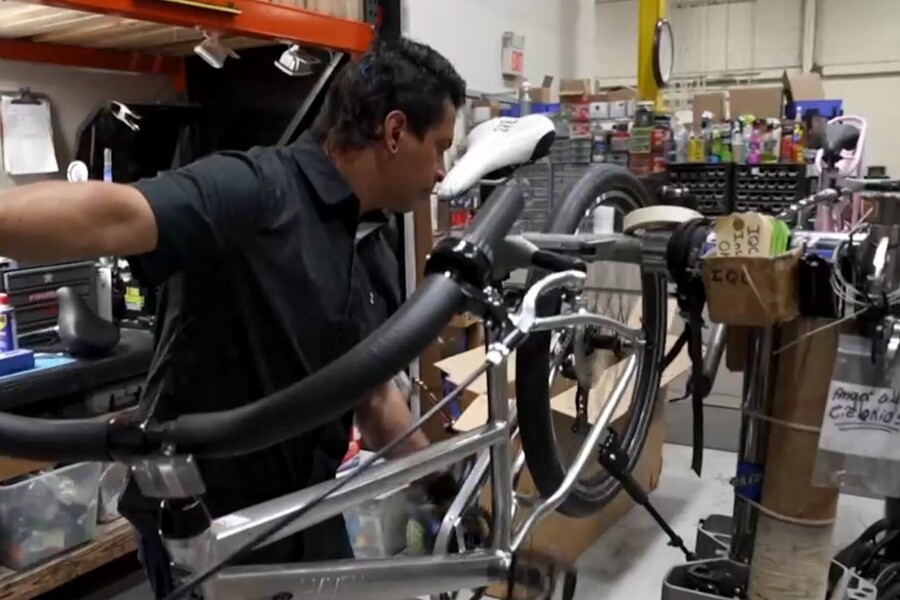When Arnold Kamler first walked through the doors of his family’s fledgling bicycle enterprise in 1972, Kent International was a small New Jersey operation staffed by just six people—Arnold’s parents, himself, and a few dedicated colleagues. Forty years later, that modest workforce has grown to over 200 employees under the leadership of Arnold and now his son, Scott Kamler. Together, they built Kent into one of America’s largest bicycle suppliers, distributing nearly two million bikes a year to major retailers like Walmart. Yet, after decades of incremental growth and careful management, the Kamler family’s legacy now teeters on the brink of collapse, imperiled by a sudden, punishing surge in import duties that raise the cost of essential components by more than 180 percent.
Kent’s business model long relied on affordable manufacturing in Asia, especially China, where economies of scale and streamlined supply chains kept production costs low. Roughly ninety percent of Kent’s frames, wheels, handlebars, gears, and other essential parts have been sourced from Chinese factories, with final assembly and quality control conducted at the company’s South Carolina facility. This hybrid approach allowed Kent to offer competitively priced bicycles to American consumers while maintaining domestic jobs in assembly and distribution.
The company had endured a 25 percent tariff on Chinese imports since 2018, absorbing the incremental costs by optimizing operations and passing only minimal increases onto retailers. That delicate balance was shattered in late March 2025 when the U.S. administration expanded existing trade measures and imposed fresh levies on a broad swath of Chinese-manufactured goods. Bicycles and related parts were swept up in the new classification, driving Kent’s combined duty rate to an astounding 181.47 percent for any shipments arriving after March 20. A single shipment of wheels held in port during the transition inadvertently fell under the new rates, tripling the duty expense overnight.
During the ensuing month, from March 20 to April 20, Kent paid $3.1 million in duties alone—a sum that dwarfs the company’s budgets for research and development or domestic expansion. A bicycle wheel once carrying a $10 to $12 tariff now incurs a $30 import duty, all automatically deducted from Kent’s U.S. Customs account without negotiation or a grace period. As Arnold Kamler ruefully noted, “China isn’t paying these tariffs—Kent is.”
With cash reserves drained, Kent suspended all new orders from China in April and plans to halt May purchases. In search of relief, the company turned to alternative suppliers in Vietnam, Thailand, Indonesia, and other low-cost Asian markets. Yet those vendors, too, soon fell under the expanded U.S. trade restrictions, nullifying Kent’s diversification efforts. “We had already shifted nearly half of our business out of China,” Arnold explained, “and now every country we rely on faces the same punitive duties.”
Domestic production might seem an obvious remedy, but the numbers tell a starkly different story. U.S.-based manufacturers lack the scale and cost efficiencies of their Asian counterparts. When a local metalworking firm quoted Kent $12 per handlebar—far above the 80 cents worth of steel it contained—the company realized that reshoring key components would inflate a $100 bicycle’s production cost to nearly $1,000. Such prohibitive expense renders large-scale onshoring unfeasible without significant government subsidies or radical automation investments.
Meanwhile, the human impact unfolds in the assembly plant and beyond. Kent’s South Carolina facility employs around 50 workers whose livelihoods depend on a steady influx of parts. Anxiety permeates the shop floor as employees fret over potential job cuts or reduced hours. Longtime assembler Maria Gonzalez, with over a decade at Kent, confided, “We’ve been told our jobs are secure, but if parts stop arriving or become unaffordable, what choice do they have?”
On the consumer side, family budgets face looming strain. Retailers may pass on some tariff-induced costs, but competitive pressures limit how much of the increase they can absorb. Bicycles that once served as accessible recreation or commuting options for middle- and lower-income households risk becoming luxury goods, further narrowing mobility choices at a time when eco-friendly transportation and outdoor activities are in high demand.
Kent’s struggle mirrors that of the broader U.S. bicycle industry, where dozens of manufacturers, parts suppliers, and distributors confront identical tariffs and cost pressures. Industry associations, including the Bicycle Products Suppliers Association and the National Bicycle Dealers Association, have appealed to trade officials for targeted relief. In April, they warned that without adjustments, up to 30 percent of domestic bike manufacturers could shutter within a year, costing thousands of American jobs.
Potential solutions exist but require decisive policy shifts and collaboration. Rolling back or exempting bicycle-related goods from punitive tariffs would restore Kent’s cost structures and stabilize operations. Bilateral negotiations or multilateral agreements focusing on specific unfair practices could address trade imbalances without ensnaring American businesses in blanket duties. Incentivizing domestic manufacturing—through tax credits, low-interest loans, or grants—could spur the reestablishment of competitive U.S. component production. Finally, industry-led consortia might pool resources to achieve the scale needed for viable onshore part fabrication.
For now, the Kamler family watches and waits. Four generations have weathered wars, recessions, and shifting consumer trends, yet today’s trade measures present an unprecedented test. As Kent International braces for the coming months, the future of American bicycle manufacturing—along with the livelihoods of thousands of workers—hangs in the balance. Whether policymakers heed calls for relief or family businesses across the nation adapt in new, unforeseen ways, the next chapter of this storied industry remains unwritten.
